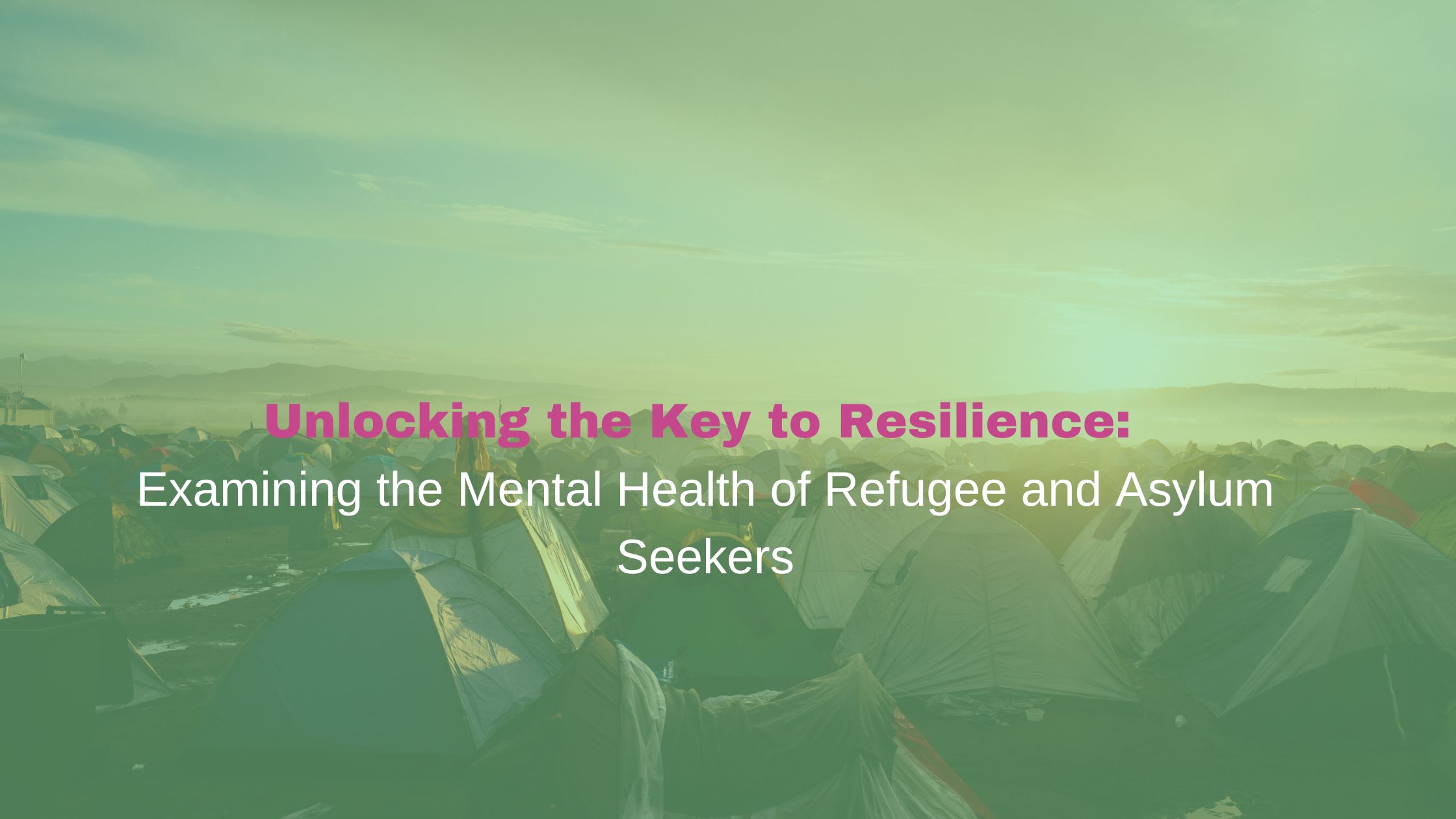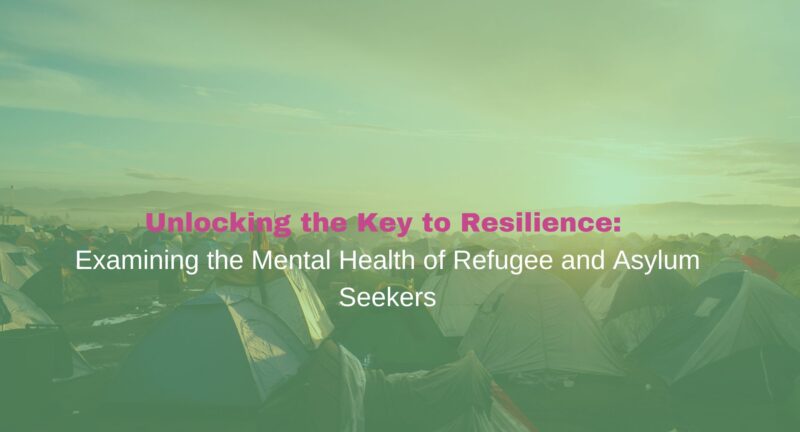
As the global refugee and asylum seekers crisis continues to grow, it is becoming increasingly important for those affected to be aware of the mental health resources available to them. Seeking therapy can provide refugees and asylum seekers with the emotional support, education, and guidance needed to cope with their traumatic experiences. For many, fleeing their homes and leaving behind everything they had grown accustomed to, can be a traumatic experience. Psychological issues that may arise from this experience include depression, anxiety,
stress, and post-traumatic stress disorder (PTSD). Refugees and asylum seekers may also experience other mental health issues such as survivor’s guilt, cultural adjustment difficulties, and grief.
Accessing mental health services can be difficult due to various barriers. Before making
the journey, migrants and refugees may face a lack of livelihood and educational opportunities,
as well as violence, poverty, and persecution. During migration, they may have to deal with
challenging and life-threatening conditions, such as violence, survival, detention, and lack of
access to services. Once they have settled, they may be unable to access health care, have
difficulty assimilating, and face language and cultural barriers, as well as social isolation and
potential deportation. These stressors can trigger or exacerbate pre-existing mental health
problems. Children of migrants are particularly vulnerable to stressors, such as socioeconomic
deprivation, discrimination, racism, low family cohesion, and frequent school changes. These
can increase their risk of developing depression, anxiety, suicidal ideation, and substance abuse.
Asylum seekers face many unique challenges that can make their journey of refuge and
resettlement difficult. Unfortunately, they often encounter discrimination, persecution, and other
forms of mistreatment as they seek to find refuge in a new home. One of the biggest issues
The biggest problem asylum seekers face is a lack of legal protection. Many countries do not recognize asylum
seekers as refugees, meaning they lack access to the same legal rights and protections as
recognized refugees. This can mean that asylum seeker are unable to access the same resources
and services as refugees, leaving them vulnerable to exploitation, abuse, and other forms of
mistreatment. Another challenge that asylum seekers face is the lack of information and support.
Seeking asylum can be a confusing, stressful, and daunting experience, and asylum seekers need
access to reliable information and support to navigate the process. As a result, asylum seekers
can feel overwhelmed and unsupported during their journey. In addition, asylum seekers often
experience language barriers. This can be particularly challenging as asylum seekers may have
difficulty understanding the rules and regulations they must follow. This can lead to confusion
and frustration.
Mental Health of Refugee
Furthermore, therapy can help refugees and asylum seekers process and manage their
emotions, as well as develop healthy coping mechanisms. Therapy can also provide refugees and
asylum seekers with a safe and supportive space to talk about their experiences. This can be
especially beneficial for those who may have experienced violence or abuse. The opportunity to
share their stories in a safe environment can help refugees and asylum seekers to feel heard,
validated, and understood. In addition to providing emotional support, therapy can also be a
helpful tool in helping refugees and asylum seekers adjust to their new environment. Therapists
can provide them with education on culture, language, customs, and other resources in the area.
This can help reduce feelings of isolation or confusion. Migrants, refugees and asylum seekers
can contribute positively to society, but they cannot reach their full potential without good
physical and mental health.
Contact us and one of our team members will get back to you within 48 hours.
111 Waterloo St unit 406 London ON N6B2M4
mail@resiliencec.com
Phone + 1 (226) 374-4457
Cell + 1(226) 210-4170
Fax + 1 (226) 916-0283
Related Posts
Sleep Quality among University Students
University student sleep quality has been deteriorating for the last 10 years....
Unlocking the Key to Resilience: Examining the Mental Health of Refugee and Asylum Seekers
As the global refugee and asylum seekers crisis continues to grow, it is becoming...


